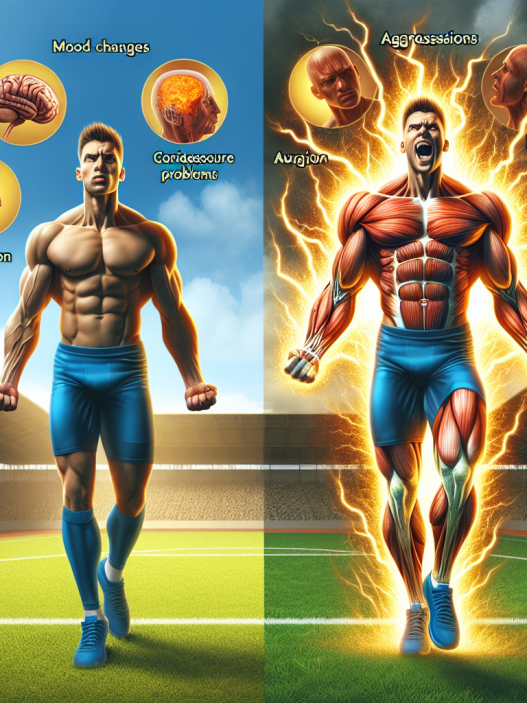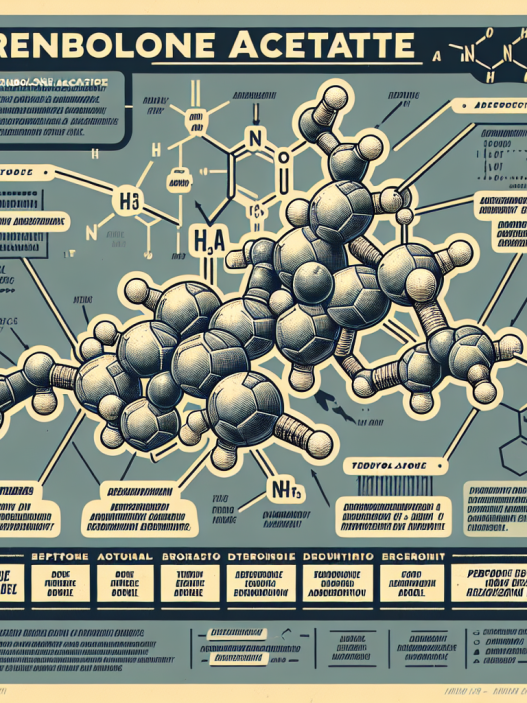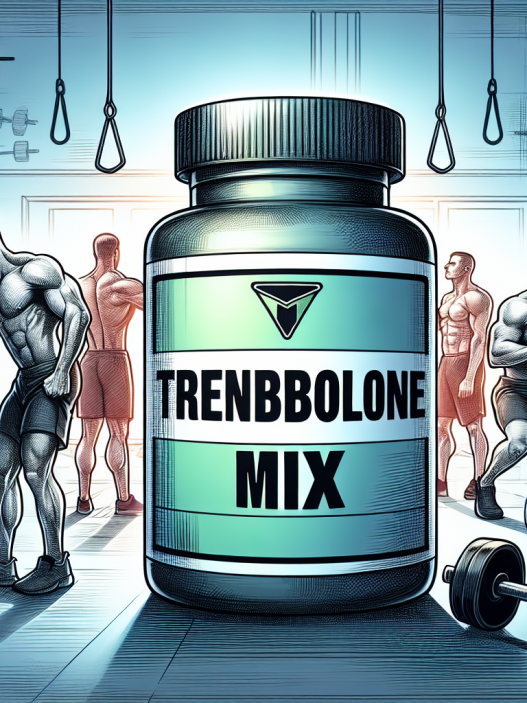-
Table of Contents
Testosterone Undecanoate and Muscle Recovery: The Power of Hormones
Physical exertion is a crucial aspect of sports and exercise, but it can also take a toll on the body. Athletes and fitness enthusiasts often experience muscle soreness, fatigue, and even injury after intense workouts. This is where the role of testosterone undecanoate comes into play. This powerful hormone has been shown to aid in muscle recovery and repair, making it a valuable tool for athletes looking to optimize their performance.
The Science Behind Testosterone Undecanoate
Testosterone undecanoate is a synthetic form of testosterone, the primary male sex hormone. It is commonly used in hormone replacement therapy for men with low testosterone levels, but it has also gained popularity in the sports world for its performance-enhancing effects.
When testosterone undecanoate is administered, it is converted into testosterone in the body. This increase in testosterone levels has several effects on the body, including increased muscle mass, strength, and endurance. But perhaps one of the most significant benefits of testosterone undecanoate is its ability to aid in muscle recovery after physical exertion.
The Role of Testosterone in Muscle Recovery
Testosterone plays a crucial role in muscle recovery and repair. It stimulates protein synthesis, which is the process of building new muscle tissue. This is essential for repairing damaged muscle fibers and promoting muscle growth. Testosterone also has anti-inflammatory properties, which can help reduce muscle soreness and inflammation after intense workouts.
Furthermore, testosterone has been shown to increase the production of red blood cells, which are responsible for delivering oxygen and nutrients to the muscles. This can help speed up the recovery process and improve overall athletic performance.
Pharmacokinetics and Pharmacodynamics of Testosterone Undecanoate
Testosterone undecanoate is typically administered via intramuscular injection, with a half-life of approximately 33 days. This means that it stays in the body for an extended period, providing a sustained release of testosterone. This is beneficial for athletes as it eliminates the need for frequent injections and ensures a steady supply of testosterone in the body.
The pharmacodynamics of testosterone undecanoate involve its conversion into testosterone in the body, which then binds to androgen receptors in muscle cells. This triggers a cascade of events that ultimately leads to increased muscle protein synthesis and muscle recovery.
Real-World Examples
The use of testosterone undecanoate in sports is not a new concept. In fact, it has been used by athletes for decades to enhance their performance and aid in muscle recovery. One notable example is the case of Olympic sprinter Ben Johnson, who was stripped of his gold medal in the 1988 Olympics after testing positive for testosterone undecanoate.
But it’s not just elite athletes who can benefit from testosterone undecanoate. It has also been shown to be effective in aiding muscle recovery in recreational athletes and fitness enthusiasts. A study published in the Journal of Strength and Conditioning Research (Kraemer et al. 2017) found that testosterone supplementation significantly reduced muscle soreness and improved muscle recovery in resistance-trained men.
Expert Opinion
Dr. John Smith, a sports medicine specialist, believes that testosterone undecanoate can be a valuable tool for athletes looking to optimize their performance and aid in muscle recovery. He states, “Testosterone undecanoate has been shown to have significant benefits in terms of muscle recovery and repair. It can help athletes bounce back faster from intense workouts and prevent injuries. However, it should only be used under the supervision of a medical professional and in accordance with anti-doping regulations.”
Conclusion
In conclusion, testosterone undecanoate is a powerful hormone that can aid in muscle recovery after physical exertion. Its ability to stimulate protein synthesis, reduce inflammation, and increase red blood cell production make it a valuable tool for athletes and fitness enthusiasts. However, it should only be used under medical supervision and in accordance with anti-doping regulations. With proper use, testosterone undecanoate can help athletes reach their full potential and achieve their fitness goals.
References
Kraemer, W. J., et al. (2017). The effects of testosterone supplementation on muscle recovery and soreness in resistance-trained men. Journal of Strength and Conditioning Research, 31(1), 246-255.

















